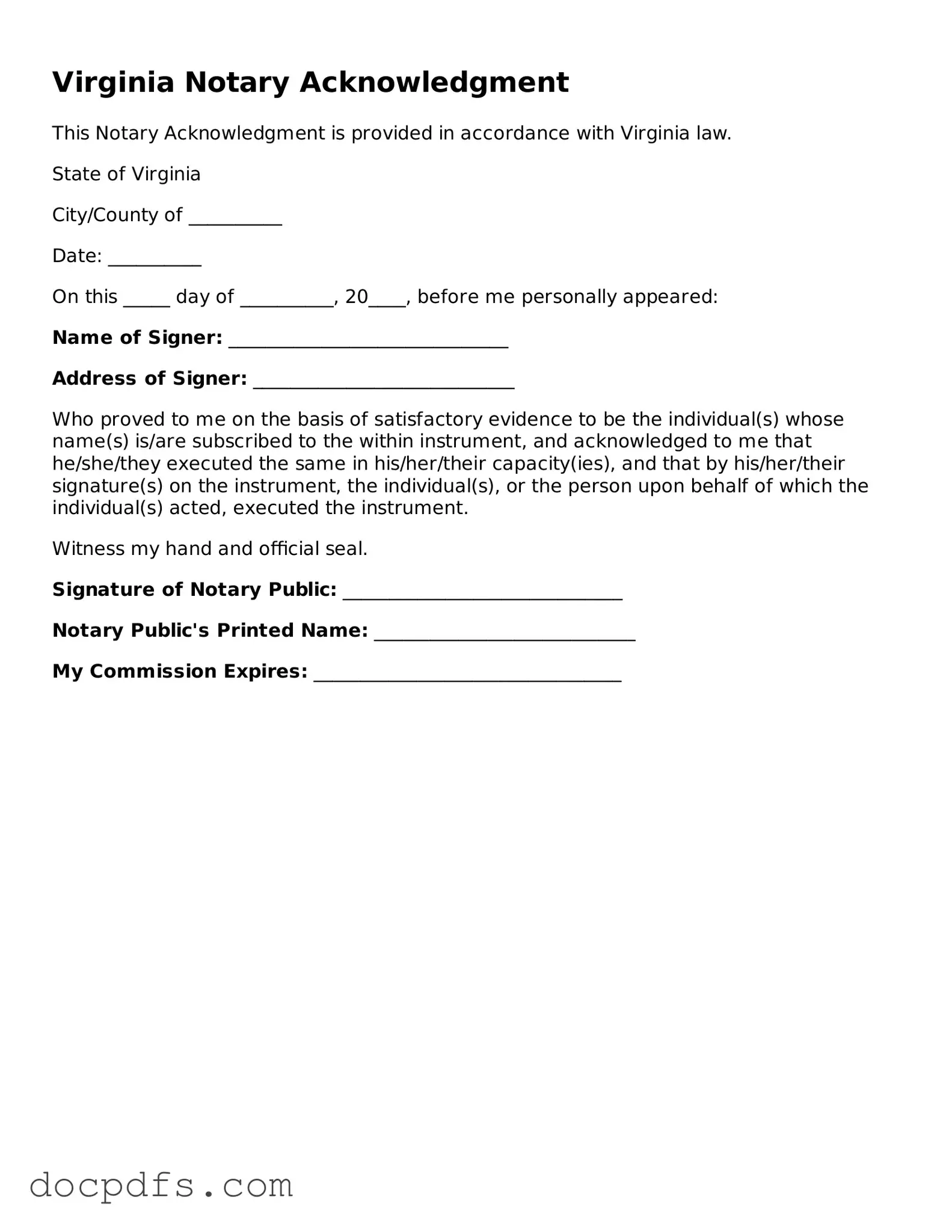The Virginia Notary Acknowledgement form is a legal document that a notary public uses to confirm that a person has willingly signed a document. This form serves as proof that the signer was identified and that they understood the contents of the document at the time of signing. It is often required for various legal documents, such as deeds, contracts, and powers of attorney.
When do I need to use a Notary Acknowledgement?
A Notary Acknowledgement is necessary when you need to verify the authenticity of a signature on a document. Common situations include:
-
Real estate transactions, such as property deeds
-
Legal documents, like wills and powers of attorney
-
Financial agreements and contracts
In general, if a document requires notarization, a Notary Acknowledgement is likely needed.
Who can serve as a notary in Virginia?
In Virginia, any individual who meets certain qualifications can become a notary public. The requirements include being at least 18 years old, being a resident of Virginia or a business owner in the state, and passing a background check. Once appointed, notaries must adhere to state regulations while performing their duties.
A Notary Acknowledgement typically contains the following information:
-
The name of the person signing the document
-
The date of the acknowledgment
-
The notary's name and signature
-
The notary's seal
-
A statement confirming that the signer appeared before the notary and acknowledged signing the document
This information ensures that the acknowledgment is complete and legally valid.
Is there a fee for notarization in Virginia?
Yes, Virginia law allows notaries to charge a fee for their services. The maximum fee for a standard acknowledgment is typically set at $5 per signature. However, notaries may charge additional fees for travel or other services, so it's wise to discuss any potential costs upfront.
How do I find a notary public in Virginia?
Finding a notary public in Virginia is relatively easy. You can:
-
Search online for local notaries using websites that list notary services
-
Visit banks or credit unions, as they often provide notary services for customers
-
Check with local government offices, such as the county clerk's office
Make sure to verify the notary's credentials before proceeding.
Can a notary refuse to notarize a document?
Yes, a notary has the right to refuse to notarize a document under certain circumstances. Common reasons for refusal include:
-
If the signer is not present
-
If the signer cannot provide valid identification
-
If the notary suspects fraud or coercion
Notaries must act in accordance with the law and their ethical obligations, ensuring that all signings are legitimate.
How long is a Virginia Notary Acknowledgement valid?
A Virginia Notary Acknowledgement does not expire; however, the underlying document may have its own validity period. It's essential to check the specific requirements related to the document in question. Generally, as long as the document is legally sound and the acknowledgment is properly executed, it remains valid indefinitely.

